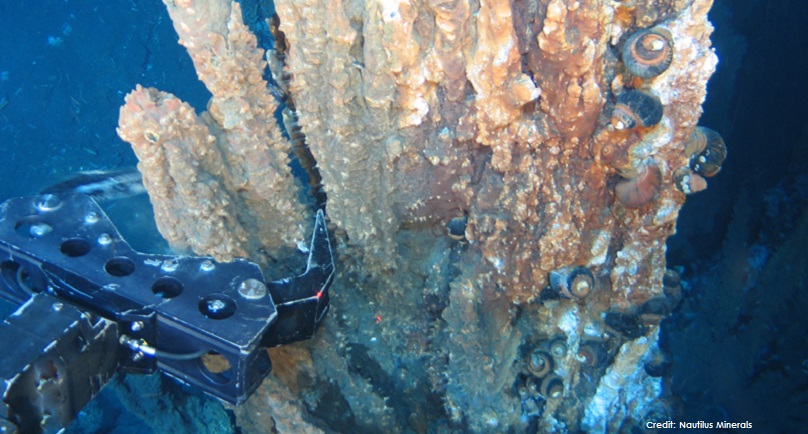by Allanah Leahy – EM TV Online
In a media release last Wednesday, Toronto-based Nautilus Minerals announced the settlement of the first of two conditions preceding the securement of their agreement with the state of Papua New Guinea regarding the Solwara 1 project, located in the Bismarck Sea.
Nautilus had previously announced in May this year that Papua New Guinea’s 15 per cent stake (US$113 million) towards the completion of the first production stage of the Solwara 1 project, once paid, would secure ‘certain intellectual property rights’, along with the charter of a ‘production support vessel’.
Nautilus Minerals CEO Mike Johnston remarked “Nautilus is pleased it has satisfied the first of the conditions precedent by securing the intellectual property rights required by the State and is now one step closer to securing the release of the escrowed funds.
“Discussions remain on track, with potential vessel partners to obtain a suitable vessel arrangement within the timeframe required under the agreement, which will see the funds released from escrow.”
The company has been focused on securing a suitable vessel arrangement and is negotiating with potential vessel partners, as well as arranging tender processes with shipyards experienced in building offshore construction vessels.
Controversy surrounding the Solwara 1 project is worldwide. Papua New Guinea is the very first candidate to allow deep seabed mining under national legislation, which has garnered attention from environmentalists, scientists and non-government organisations alike.
“There is insufficient scientific data to understand the impacts of deep sea mining, there are no regulatory frameworks in place to govern mining operations and the capacity to enforce such frameworks does not yet exist.
“The issuing of exploration licences must cease until these issues are addressed,” said Natalie Lowrey, spokesperson for the Deep Sea Mining campaign.
Scientific viewpoints detail the potential loss of undiscovered species and inadequate risk assessments on environmental and ecological damage.
A report titled ‘Deep Sea Bed Mining in the South Pacific’ by Dr Tina Hunter and Madeline Taylor from the Centre for International Minerals and Energy Law highlighted New Zealand’s Exclusive Economic Zone and Continental Shelf (Environmental Effects) Act, passed in 2012, which requires consideration of the following, to name a few:
- Cumulative effects;
- Effects on the environment or existing interests of allowing an activity with or without a marine consent, including the effects that may occur in New Zealand or in the waters beyond the continental shelf;
- The effects on human health that may arise from effects on the environment;
- The importance of protecting the biological diversity and integrity of marine species, ecosystems and processes;
- The importance of protecting rare and vulnerable ecosystems and the habitats of threatened species; and
- New Zealand’s international obligations.
Nautilus Minerals’ mining lease was granted by the government of Papua New Guinea on 17 January 2011, approved with an Environmental Permit in December 2009 from the Department of Environment and Conservation of Papua New Guinea.


